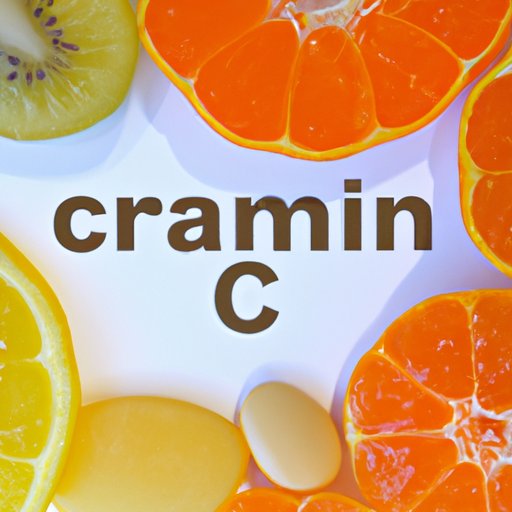
Exploring Where Vitamin C Comes From
Vitamin C, also known as ascorbic acid, is a water-soluble vitamin that is essential for maintaining good health. It plays a crucial role in the production of collagen, which is necessary for the growth and repair of tissues in your body. Additionally, vitamin C is a powerful antioxidant that helps to protect your cells from damage caused by free radicals. In this article, we will explore the natural food sources of vitamin C, its historical background, the benefits it offers to your health, and the impact of food processing and preservation on its availability.
Historical Background
Vitamin C has been known for centuries as a substance necessary for maintaining good health. It was first isolated and identified as a specific substance in the 1930s by a Hungarian biochemist named Albert Szent-Györgyi. At the time, Szent-Györgyi was studying the biochemical properties of adrenal glands and was able to discover a substance within them that had anti-scurvy properties.
The discovery of vitamin C was a major breakthrough in the field of nutrition, as it allowed for the synthesis of the compound in the laboratory. This made it possible to mass-produce vitamin C, making it more readily available to people around the world.
The Benefits of Vitamin C
Vitamin C offers a wide range of benefits for your health. One of the most important functions of vitamin C is its role in supporting the immune system. Vitamin C helps to stimulate the production of white blood cells, which are responsible for fighting infections and diseases within your body.
Additionally, vitamin C is important for the production of collagen, which is necessary for maintaining healthy skin, hair, and nails. It also helps to protect your cells from damage caused by free radicals, which can contribute to the development of certain types of cancer.
Vitamin C deficiency can lead to negative health effects, including fatigue, muscle weakness, joint and muscle aches, and an increased risk of infections. Over time, a severe deficiency in vitamin C can lead to a condition known as scurvy, which causes bleeding gums, skin discoloration, and even death in extreme cases.
The Impact of Food Processing and Preservation
One of the major factors that can impact the availability of vitamin C in your diet is food processing and preservation. When fruits and vegetables are cooked, canned, or otherwise processed, they can lose a substantial amount of their vitamin C content. Additionally, the length of time that fruits and vegetables are stored before consumption can also impact their vitamin C content.
To maximize the amount of vitamin C in your diet, it is important to choose fresh fruits and vegetables that are in season whenever possible. If you do choose to eat canned or frozen fruits and vegetables, look for products that are labeled as containing no added sugar or preservatives.
Q&A with a Nutritionist or Health Expert
To learn more about vitamin C, we spoke with a registered dietitian to get their perspective on this important nutrient.
Q: What are some of the best natural food sources of vitamin C?
A: Vitamin C is found in a variety of fruits and vegetables, including citrus fruits (such as oranges and grapefruits), strawberries, melons, kiwifruit, red and green peppers, broccoli, and cabbage.
Q: How much vitamin C do I need each day?
A: The recommended intake of vitamin C for adults is 75 milligrams per day for women and 90 milligrams per day for men. However, some individuals may require more vitamin C than this, such as smokers or individuals with certain medical conditions.
Q: Can I get too much vitamin C?
A: While vitamin C is generally safe in high doses, consuming too much can cause gastrointestinal side effects such as diarrhea, nausea, and abdominal cramps. Additionally, high doses of vitamin C may interfere with certain medical tests, so it is important to talk to your doctor before taking high-dose supplements.
Conclusion
Vitamin C is an essential nutrient that plays a crucial role in maintaining your health. By choosing fresh, seasonal fruits and vegetables and minimizing your intake of processed foods, you can help to ensure that you are getting the optimal amount of vitamin C in your diet.





